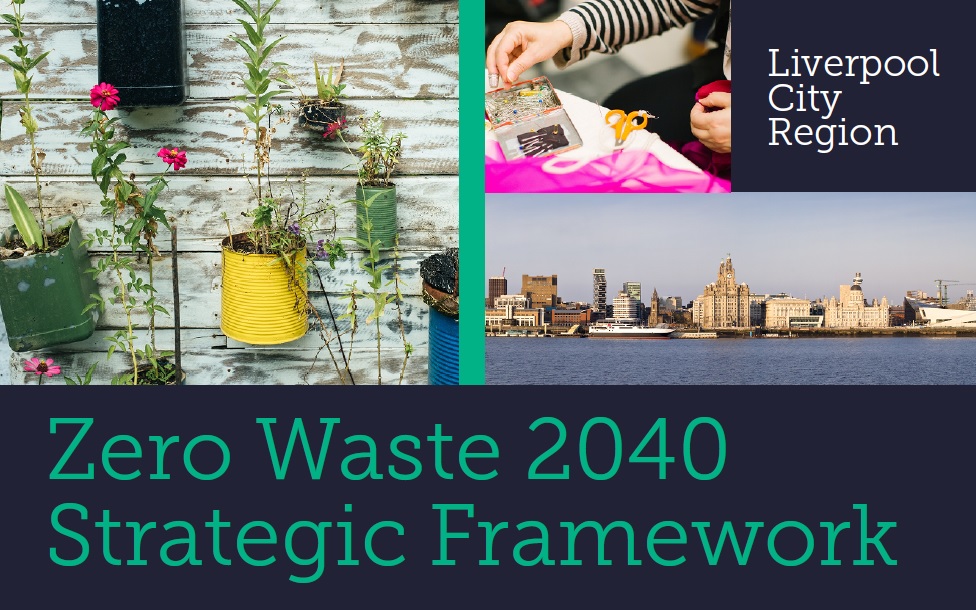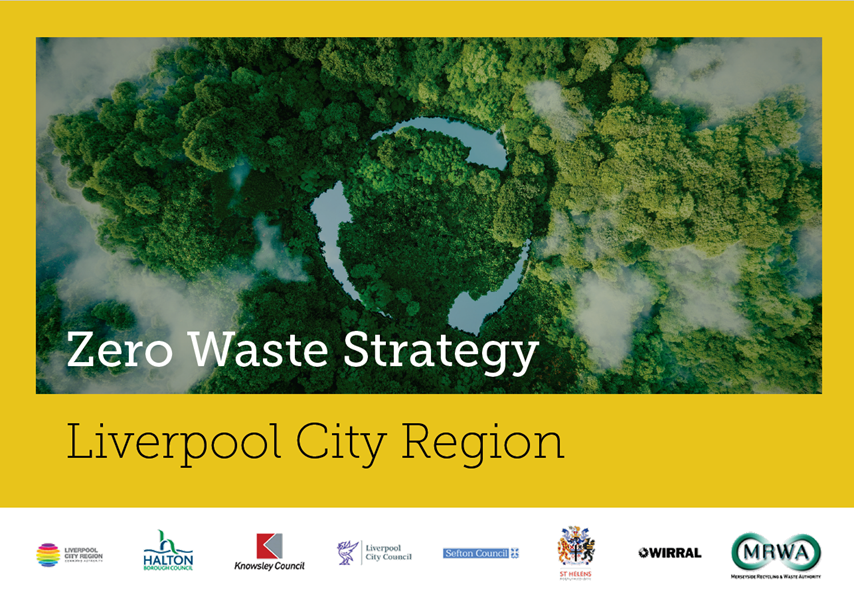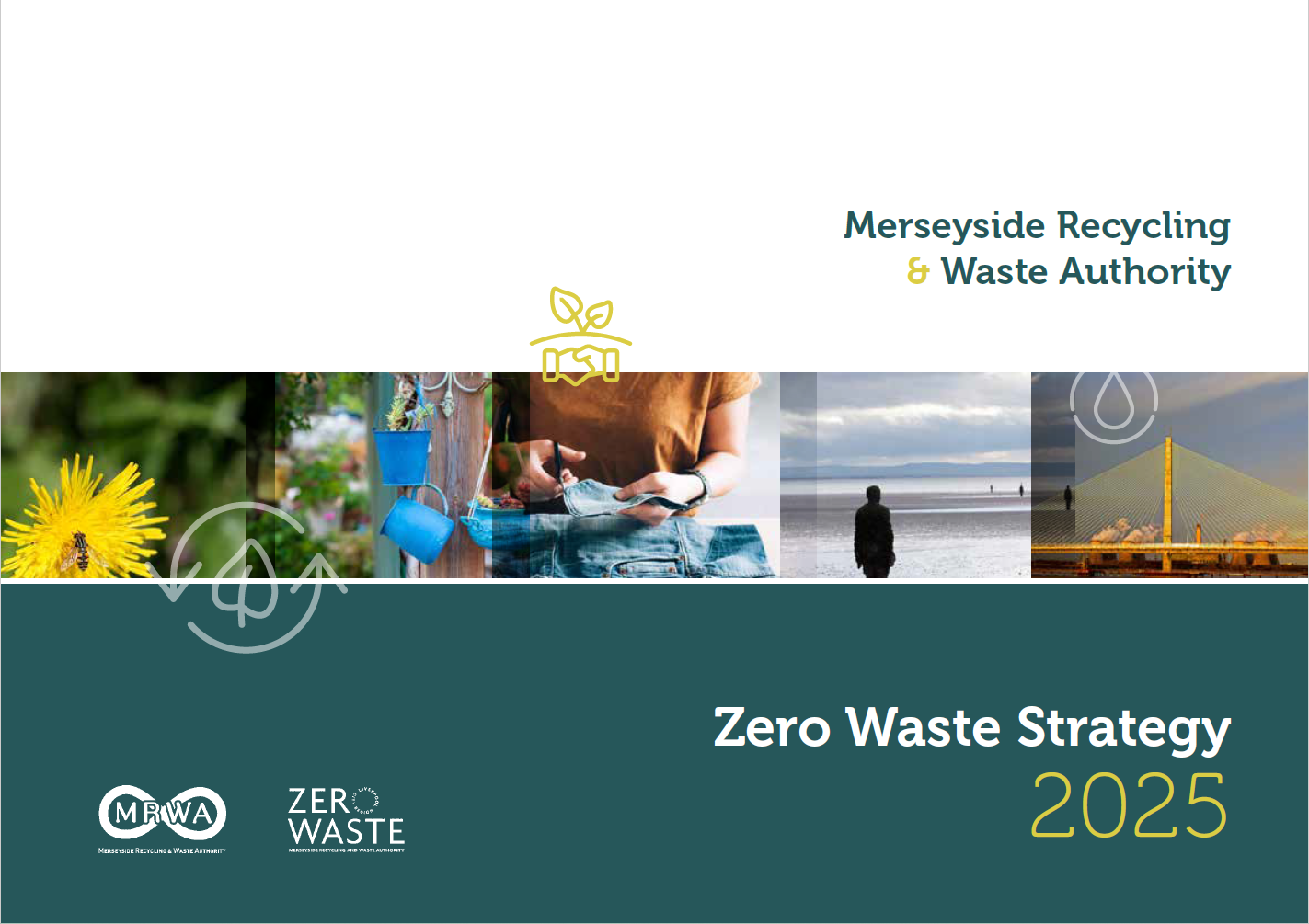Liverpool City Region (LCR) Zero Waste 2040 Strategic Framework
Our management of material resources has come a long way in the last 20 years. Recycling levels have risen, and landfill has fallen, but in the next 20 years, we need to do even more.
Implementation of the National Resources and Waste Strategy in the city region means we need to transition towards even greater circulation and decarbonisation of material resources in our economy, backed by infrastructure fit for the future and a shift away from wasteful behaviours by all.
This Framework outlines the proposed, ambitious strategy which is our response to maximising the impact of material resource use to cut carbon emissions across the city region.
Click the front cover below to open the document.
Liverpool City Region (LCR) Zero Waste Strategy
The Joint Liverpool City Region Zero Waste Strategy has been developed by the LCR Waste and Resources Partnership, which is made up of representatives from the six District Councils (Halton, Knowsley, Liverpool, Sefton, St Helens and Wirral).
This strategy sets the strategic direction for the LCR Waste and Resources Partnership. It offers our collective ambition to achieve zero avoidable waste by 2040 and demonstrates the link between waste and achieving net zero carbon in the City Region. It was approved by MRWA Members in February 2025 and is due to be approved by each partner’s respective cabinet/committee.
Click the front cover below to open the document.
MRWA Zero Waste Strategy
Following development of the Regional Strategy, the Authority has developed an MRWA Zero Waste Strategy, which follows the three key themes of People, Planet and Economy. These represent the key pillars of sustainability (the triple bottom line) and ensure social value principles are recognised in our delivery of zero waste action. Strategic outcomes are identified under each key theme, together with a focus on Education, Food and Reuse as critical areas for increased action.
Implementation of the Strategy will support the development and delivery of services to minimise waste, increase reuse, repair and effectively and efficiently recycle and compost more material to reduce residual waste. A trajectory towards less waste and greater circularity of resource use (the circular economy) will support a reduction in the carbon emissions associated with high levels of resource consumption and residual waste (the linear economy).
The Strategy recognises the importance of working with residents and communities to understand attitudes and encourage positive change towards less wasteful behaviours. Accordingly, there is a strong focus on education, campaigns and community engagement to rethink resource use and encourage a reuse culture to reduce waste at source by as much as possible and achieve our zero waste.
Click the front cover below to open the document.
Further Reading
Find out more: Independent Strategic Review of Waste for the Liverpool City Region 2016
Find out more: UK and England Waste Strategy
Find out more: Liverpool City Region Zero Waste Strategy – Strategic Environmental Assessment (SEA) Screening Statement




